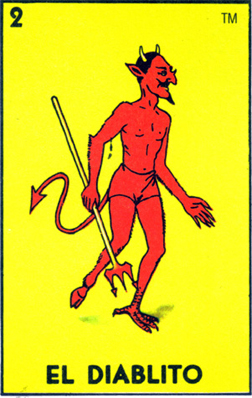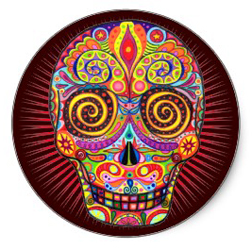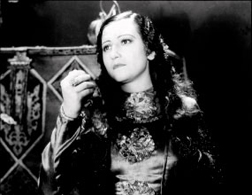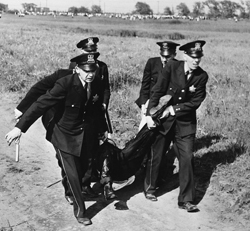Mercury
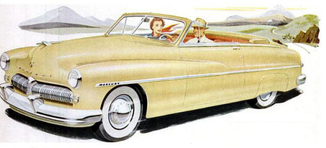
Fullerton owned and appropriated plenty of cars, most of them well past their sell-by dates and most of them Mercurys. He said they reminded him of small-town mid-western motel rooms with open, dust-caked windows and rain-stained curtains on warm, sunny Tuesday afternoons with a bottle of bourbon, a transistor radio, and the company of a waitress or shoe clerk he'd decided three hours ago he wanted to get to know better. Sharing the automotive tastes of his mentor, Delta bluesman K.C. Douglas, Fullerton favored the immortal Mercury '49.
Songs on this page:
Songs on this page:
- Speakin' of the Devil
- Midnight Snack
- B-17
- This Ain't the Life (It's the Blues)
- Decorating My Mind
- Stop Me (Before I Love Again)
- What Did I Do?
- The Blue Mango Tango
- Moody On Me
- The Zeet Street Beat
_______________________________________
|
1. Speakin' of the Devil
copyright Leon Fullerton Speakin' of the devil,
look what the cat dragged in. Speakin' of the devil, look what the cat dragged in. Looks so low-down, mean, and lonesome, makes me wonder where she might have been. She's into performing, she's got a new show, she's into drag and destruction, that's all I know. Speak of the devil, look what the cat dragged in. Looks so low-down, mean, and lonesome, makes me wonder where she might have been. She went down to McGinty's, thought she'd have a draft or three. She went down to McGinty's, thought she'd have a draft or three. The signs were all against her, you know it left her in Missouri. She said, "If you don't like my peaches, you better stop shaking on my tree. If you don't like my cherries, Harry, stop shaking on my tree. I just might have to do you some bodily injury - like this! Speakin' of the devil.... |
Fullerton’s fifth and, we can say with a modicum of confidence, final marriage, to Blanche Trafalgar, was the unlikeliest and, in a strange sense, most successful. (The marriage stands today, even though Fullerton’s whereabouts is unknown.)
Trafalgar, New York's legendary firebrand feminist and performance artist, gained Fullerton’s attention (and admiration) as one of the cadre of women whose efforts led to the opening of McSorley’s Tavern to women in the 1970s. He proposed to her in 1992, after a protracted (for him) bout of singlehood. (He had, in fact, recently gotten a “Singlehood is powerful" tattoo.) Trafalgar had been teaching a course at the New School, Moral Relativism: Dada and Its Discontents, and an article she wrote for Village Voice caught Fullerton’s attention. He responded with a letter to the editor on immoral relativism, and the battle was joined. The Dada movement seemed to Fullerton (who, until he read her article, had never heard of it) to epitomize his existence a little too closely for comfort. He felt like a pill bug whose rock had been lifted. No one but his daughter could call him Dada and get away with it. Over drinks (at McSorley’s), they progressed from rancorous loathing to truce to accord to accommodation to conspiracy. There paths diverged somewhat more than ten years later, when she joined Hillary Rodham Clinton’s Senate campaign staff and he took off for Texas to volunteer for Kinky Friedman’s first gubernatorial bid. They continued to make a certain amount of time for each other, and some believe her to be the one person from his old life who Fullerton remains in contact with. He once said to his nephew Raphael, “That chick keeps a secret like a Timex keeps a-tickin’." Queried, she talked with us about what she called his emotional absenteeism. “No one knows where he is. But you can’t really accuse him of disappearing. He was never really there to begin with.” |
_______________________________________
|
2. Midnight Snack
copyright Leon Fullerton Woke up at midnight
to an empty bed. Where was my baby? My heart was filled with dread. I heard a thump from down the hall - could it be a burglary? A light shone from the kitchen. I tip-toed down to see. That's when I caught my baby fooling around behind my back, that's when I caught my baby having a midnight snack. Her head was stuck inside the fridge like some kind of botched-up suicide, a stack of Tupperware containers tottered by her side. She was excavating cold cuts from the back of the bottom rack. I said, "Babe, you'll catch your death in there, come on back to the sack," the night I caught my baby slipping around behind my back, the night I caught my baby having a midnight snack. She had a Ring Ding in her fist, she had a drumstick in her mouth, she had a strange light in her eye, just like her mind had traveled south. It was a case of midnight munchies, the worst I ever saw. Should I run to get a doctor? Should I notify the law? The night I caught my baby sneaking around behind my back, the night I caught my baby having a midnight snack. When she hauled it all to the table it took her seven trips, then she dealt herself a dagwood that would defy a gator's lips. When she finally got down to it, I saw how it would be. If you can't lick 'em, join 'em. "Honey, make some room for me!" The night I caught my baby messing around behind my back, the night I caught my baby having a midnight snack. |
Of his first wife, Anastasia, Fullerton said, "Annie was a great dancer and all, but, I knew it was love when I saw how she could eat."
|
_______________________________________
|
3. B-17
copyright Leon Fullerton Play B-17 one more time and I'll leave,
I can see that you're trying to close. You've turned off the lights in the restrooms, the jukebox is all that still glows. You said, "Buddy, decide where it is you reside, 'cause, buddy, you can't abide here." Play B-17 one more time and I'll leave, with a heart full of headache and a head full of whiskey and beer. It's a song 'bout a man loves a woman, and brother, I know it too well. Don't bother to turn my chair over, just leave it right here where I fell. I hope it ain't no big magilla, it's the soul's long dark night that I fear. Play B-17 one more time and I'll leave, with a head for a heartache and a heart full of whiskey and beer. |
Fullerton knew what every barfly worth his tab knows: in the secret heart of Nightworld, the limbo of a liquor establishment is always preferable to the chaos outside its doors. The jukebox love song is always preferable to the hard-hearted light of night. Fullerton, who ushered many bars through the rites of last call, told this story of a particular bar room Bartleby — a guy who, when it was time to go home, would prefer not to.
“On the jukebox of a remarkably unremarkable Cincinnati drinking establishment,” said Fullerton in the Hustler interview, “B-17 was ‘Rescue Me,’ by Fontella Bass, the one-hit wonder who hit it so far out of the park with that one, she’d managed to say it all. This poor guy - never got his name - couldn’t get enough of it. Kept saying, ‘That was our song.’ “When I realized the bartender was on the two-minute countdown to ejecting him physically, I told him, ‘No, amigo, it’s just the song you thought was your song back when you thought you and her would be together forever and ever, which you’re not going to be, or you wouldn’t be in here drunk and begging a tired bartender to play a song for you because you’ve used up all your quarters and you figure you can use it for leverage in your lame, imaginary negotiation, which won’t work, because closing time is closing time, which is why they call it closing time the whole world round.” “B-17” originally appeared on the 1964 album Nightworld. |
_______________________________________
|
4. This Ain't the Life (It's the Blues)
copyright Leon Fullerton Been lonely without you,
there ain't no doubt about you. The time I been killing been filling with bourbon and boo. Folks claim that it's plain I ain't feeling no pain. Well, honey, that just ain't true. They think I'm living the high life? Well, they don't know my life. This ain't the life, it's the blues. Maybe I been spotted scrounging 'round the lounges. I ain't studying native habits, I grin in my gin all night long. But life ain't no cabaret when them indigoes get in the way, and that's why I wrote you this song: 'cause you got just one life to lose, and here's the eleventh hour news: This ain't the life, it's the blues. Take a walk on my side any time, any shoes will do, but, honey, consider this rule: You got to pay some dues, and if you choose to refuse, forget it. This ain't the life, it's the blues, I'm talking to you, this ain't the life, it's the blues, I shuck you not, my darling, this ain't the life, it's the blues, don't jump to no contusions, this ain't the life, it's the blues, get down, now, grind that bebop, this ain't the life, it's the blues, I got a nasty feeling, this ain't the life, it's the blues. |
In a twisted Hallmark moment, Fullerton wrote this as a generic heartbreak tune - possibly shortly before his second wife, Trilby Canasta divorced him, if his "cabaret" reference is an indication.
The movie Cabaret was in the theaters when he wrote the song, and he blamed Liza Minelli, Joel Gray, and novelist Christopher Isherwood for the brief descent into the maudlin. "The only way out of a Weimar-inspired funk is a fat dose of sentimentality. Anyhow, there's only so much a songwriter can write about," he said in the Paul Williams Crawdaddy! interview. "Breaking up. Breaking up again. Breaking up again and again. So we write the same things over and over again. Love and death. Heartbreak and redemption. Sin and salvation. Drinking and dancing. Trucks and trains. Shoot-outs. Highways. Cars. Especially Mecurys." |
_______________________________________
|
5. Decorating My Mind
copyright Leon Fullerton My baby loved our turtle-doving,
but there's one thing that I lacked. She said I'd get me no more loving if I didn't clean my act. My crib looked like a cross between a crash scene and a dump. The last time she come over, she required a stomach pump. Well, baby, I been occupied, I guess I fell behind. I been busy decorating my mind. Stop by if you're able, see if you can find a chair, look over by the table, must be something buried there somewhere. My baby finally left me with a dishrag and a note, said, Leon, you and me is all washed up, and, man, that's all she wrote. Interior decoration leaves me no time to unwind. I been busy decorating my mind. I got a colorized perspective, got a Technicolor view, got kaleidoscopic eyelids, always trying something new. Been polishing my cranium can't left the shine get dull, been hanging crepes and festoons from the rafters of my skull. It's an overtime undertaking, that's why my babe resigned. I been busy decorating my mind. I got a colorized perspective.... |
The seventies were a bit of a sobriety nadir, especially for Fullerton, a paragon of reckless abandon. The issue was hygiene, and it wrecked his second marriage. He argued that with all the time and money he was spending expanding his consciousness, he could hardly be expected to sweep or do laundry or dishes.
The judge, unimpressed as Fullerton's wife, Trilby, was, said, "Son, maybe not, but right now, you're going to the cleaners." It didn't immediately become a song. In fact, he'd somehow managed to forget the whole saga - at least the barbed details - until he met Charlie Mundy, a Louisiana pedal steel player. Charlie was in the throes of marital woes. When he told Fullerton that his wife had pronounced their union "all washed up," inspiration's lightning bolt struck, another round was dispatched, and another hit was born. |
_______________________________________
|
6. Stop Me (Before I Love Again)
copyright Leon Fullerton Last night she filled the basket
with soggy Kleenex balls, she keeps the papermills in business each time a lover quits giving her calls. She wrote in capitals in lipstick on her mirror at half-past ten, quote: "Stop me - before I love again. A recent weasel threw her over for a chippy from Saint Lou, left a message on her machine, it said, "Toots, I'm quitting you." Once she thought love was forever. She was so much younger then. Now she thinks: Stop me - before I love again. But last night she met a young dude - hell, he was just a kid. Looked at her in that certain way. Guess what her poor heart did. She said, "Maybe call me later," he said, "I can't hold out till then," and she said: "Stop me - before I love again." She send beer coaster postcards from Depression Avenue, address: No One Special, dead letter, postage due. Yes, she's opening for closing time, her line is, "Don't say when. No, no, just stop me - before I love again. But last night.... She said, "Maybe call me later," he said, "I can't hold out till then," and she said: "Stop me - before I love again. Please stop me - before I love again." |
Bored with news stories about psycho-killers, Fullerton turned his pen to a song about a psycho-lover he knew, a jazz singer named Darla who occupied the third bar stool from the right at a Fisherman’s Wharf bar Fullerton frequented frequently.
|
_______________________________________
|
7. What Did I Do?
copyright Leon Fullerton Compound contusion and a new tattoo,
malt liquor forty and a blue kazoo, come back, baby, what's become of you? Come and tell your daddy, what did I do? Up on the highway, down on the farm, told the prosecutor, never meant no harm. Durango's dealing dynamite, back of the barn, wake the undertaker, it's a six-alarm. What did I do, what did I do? Tell me true honey, tell me true. It could happen to you, hop in mile in my shoe, come and tell your daddy, what did I do? Short-order shylock, where's your sense of sport? I been coughing up the vig, but now I'm down a quart. Detectives do a tap-dance on my Mercury, come and tell your daddy, what's become of me? Charged me with ugly in the first degree, ninety-nine years on a sucker's plea, hauled in on suspicion of a double-dare, freaking like a deacon at the county affair. What did I do.... |
Fullerton was helpless in the thrall of many emotions, but guilt was rarely one of them. When his daughter, the artist Gwen Fullerton, refused to drive south from San Francisco to bail him out of the Ventura County Jail, he penned this. The reference to his broken leg, acquired either shortly before or during his apprehension (accounts vary), is obvious.
|
_______________________________________
|
8. The Blue Mango Tango
copyright Leon Fullerton In a rum-soaked seaside shack they call Blue Mango,
an eight-piece band grooves on a Latin beat, and when the bassist and guitar begin that tango, the boys and girls can't help but move their feet. From Tierra del Fuego to Durango, from the cafes to the plazas to the street, you can always hear the Blue Mango Tango, you can always feel that steamy jungle beat. Go check out Jimi, Jerry, Jaco, Josh, and Django jamming in that session in the sky, swapping solos on the Blue Mango Tango when you meet them in the sweet old by-and by. |
Fullerton has spent considerable quality (and quantity) time in Mexico, but his musical influences were mainly rooted in North American culture. This is a tango, but the heavenly jam band is a Who’s Who of dearly departed American string virtuosos.
|
_______________________________________
|
9. Moody On Me
copyright Leon Fullerton Don't get moody on me, baby,
I'm not your whipping boy. Don't misunderstand me. The heartache that you hand me's detrimental to my pride and joy. Don't go pointing fingers unless your aim is true. Don't be fabricating the tales that you're relating 'cause it all comes back to you. The truth will out in the strangest ways, and I could name a few. Don't get in a dander, 'cause it's bad for the gander, and that ain't good for you. If you don't want to take a dunking, don't you rock the canoe. I know there's something fishy, 'cause there's a fly in my vichyssoise, so, baby, what's bugging you? |
Fullerton’s fights with first wife, Anastasia "Annie" del Grasso were the stuff that songs are made of. Neither gave an inch. Ever. Accusations flew. The parry and thrust rivaled the duels of Errol Flynn. If the marriage was doomed to an early demise, however, the music it inspired may well be immortal. The stormiest romantic period of Fullerton’s life was, probably not coincidentally, the period during which his music had the deepest emotive content.
|
_______________________________________
|
10. The Zeet Street Beat
copyright Leon Fullerton The Zeet Street beat is so indiscreet,
let me tell ya, fella, little something can't be beat: Clap your hands, kick up your feet, get yourself down on the street. Ain't far to go, not even next door, tell you what you gonna do: Southside strutter down in the gutter serves up that synchopated stew. Shoulda known better, write your senator a letter, baby, now, don't shilly-shally. Coulda been worse, coulda wound up in a hearse instead of hiding in a cold, dark alley. Take it from me, you can get it for free, step out that door and you'll see: It's that good old rock 'n' roll, and you can get it one-two-three - four-five-six. You gotta find a female for to treat you fair. Doncha try to drag her home by the hair. Never cop yourself no rider nowhere if you don't walk down that stair. Don't look like rain, don't look like snow, look like nothing but a open door. Don't be shy, you're really quite a guy, I heard the ladies say it's so. Go cash that check, go out and give 'em heck. That's what the eagle's flying for! Go chomp on your dentures, have some Ms. adventures, guaranteed to save your soul. You're just a home-grown loner, don't even wanna phone her, dreaming 'bout that rock 'n' roll. You better get tough, start strutting that stuff, or you never gonna rock no more, no more, you never gonna rock, no, never gonna rock no more. |
"The Zeet Street Beat" is another selection from the concept album Nightworld, an opera that revolves around the patrons of a Cincinnati bar. In the title song, he fictionalizes the name of the bar to protect the guilty, calling it Losers. It’s a place where alcoholics attain a higher state of spiritual entropy. “Zeet Street” was about a patron who drank to forget his inability to talk to women. It was a not uncommon form of stage fright, and Fullerton apparently applied himself to the task of helping the youth overcome it.
In the Hustler interview that coincided with the album’s release, Fullerton said, “Peter Seger sang about about how his get-up-and-go had got up and went. This guy was more a case of his get-up-and-go wouldn’t get up or go. As usual with the guys who hung out at Losers, the solution was for the kid to just go out the door and face the day. Which I eventually got him to do. Fact is, I dragged him out of there myself and made sure he learned a thing or two.” |
__________________________________________
"Hey, mama, you look so fine,
Riding around in that Mercury '49." K.C. Douglas
"Hey, mama, you look so fine,
Riding around in that Mercury '49." K.C. Douglas

